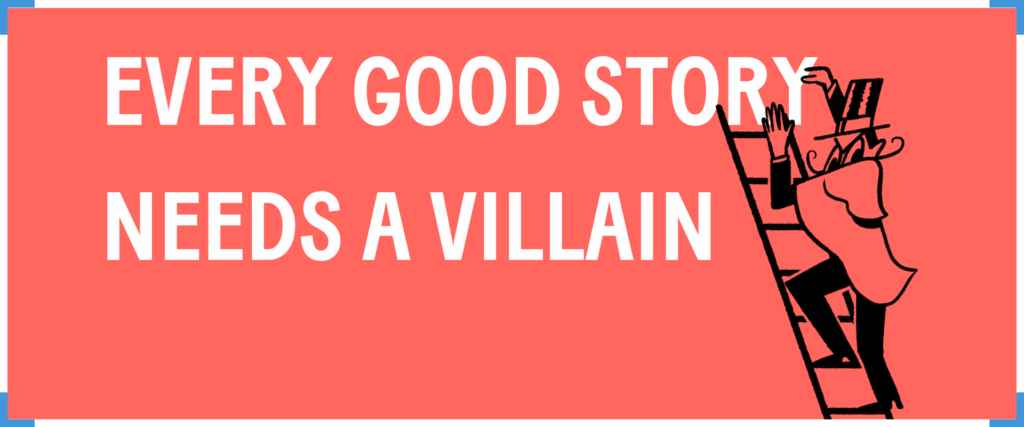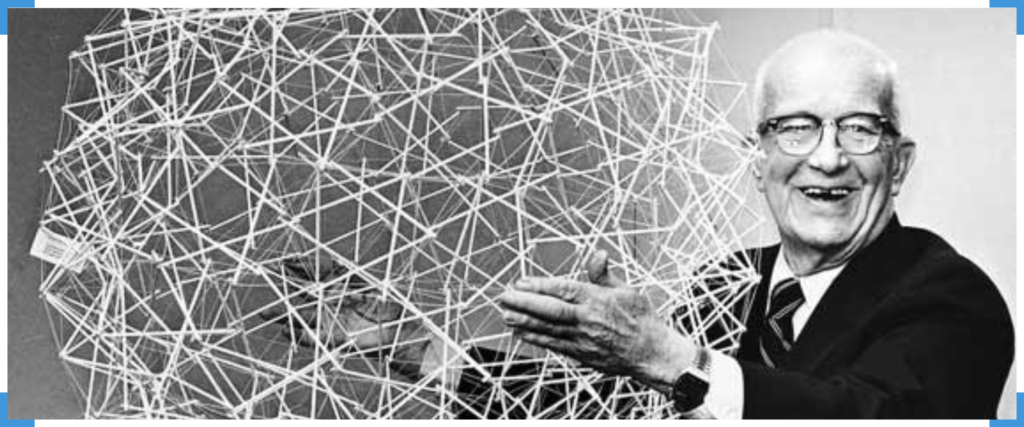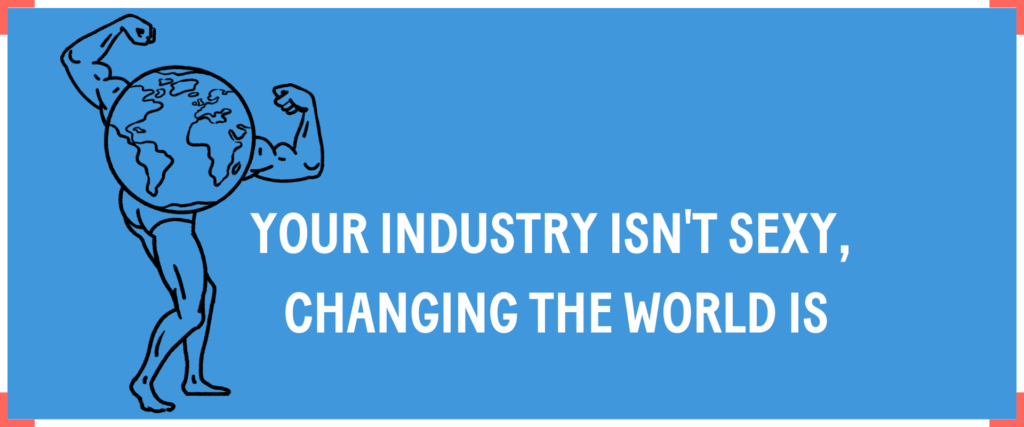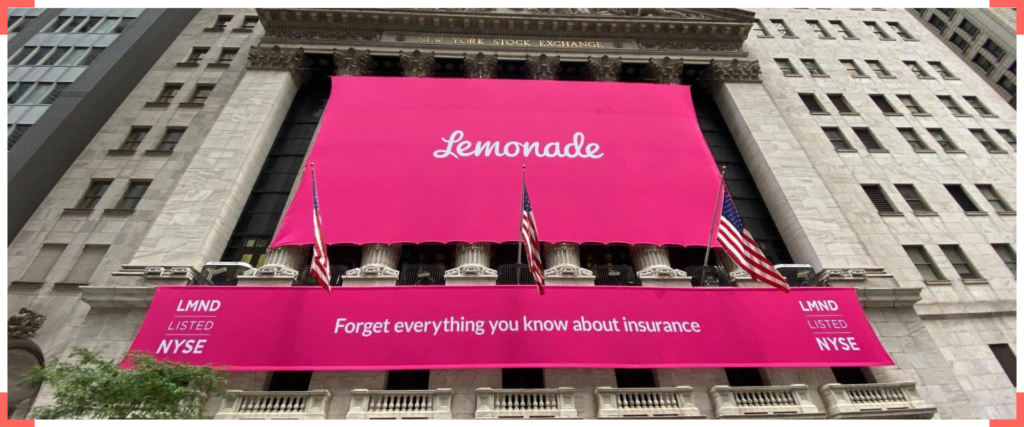
Article by Richard Johnson, author of Mission Lit
I’ve always loved the quote from Buckminster Fuller “You never change things by fighting the existing reality. To change something, build a new model that makes the existing model obsolete.” I love it so much in fact that I named my small consulting business after it.
Like any popular quote, just because it sounds good doesn’t mean it’s true, and if it resonates because it does indeed touch on some deep truth, it’s only giving you a glimpse of it and certainly not the whole picture. Fuller himself was legendary for having fascinating ideas which didn’t lead to much real world change, not in his lifetime at least.

The idea of there being a broken “old model” of business and a superior “new model” of business is central to my book Mission Lit. The book is, in a way, a guide to how you build that new model and strategies for making the old model obsolete.
In the context of a business I use “old model” to mean an established market leader who is in some way incongruous with a fair, just and sustainable world. They might create too much pollution, degrade and deplete too many resources, perpetuate too many power imbalances, or exploit too many people, in the way they meet their customers’ needs. Furthermore they might not be meeting those needs as well as they could be.
The new model, then, is a challenger who attempts to displace them by doing things in a way that is more congruent with the better world we all want. The idea that every industry is going to be magically transformed from unsustainable to sustainable by the natural and inevitable displacement of the old model by the new model, is at best wishful and and at worst deluded.
However, that doesn’t mean it doesn’t happen. We see examples of it all the time, and that has to be something we find hope in. To transform markets and the economy more widely into one which is fit for the future, it’s going to take all sorts of changes. We’re going to need deep systemic change, better business education, better governance, better regulation, more scrutiny and less impunity, and absolutely we’re going to need entrepreneurs who know how to make unsustainable businesses obsolete.
In every industry there are profit-blinkered companies with unsustainable and unjust business models ripe for being made obsolete by challengers. But when the big incumbents have so many resources at their disposal, the challengers need to use every weapon they have - and when your challenger business is genuinely better for the world, perhaps the most potent weapon you have is a story. And like any good story, for you to be the hero, you’re going to need a villain.
How this is done is something which I don’t believe is well enough understood. The first point I want to make is that this is not about telling people that the incumbents are bad and your company is good. That will achieve nothing. What you need to do is, subtly, help stakeholders - be they customers, investors, journalists, employees - understand that it is the incumbents’ innate character which has led to all the problems which exist and persist in the industry. What that does is it makes them directly complicit in those problems, by default.
The way you convince people that it is an incumbent’s character (its values, its attitudes, its behavior) that has led to the shortcoming in the industry, is you highlight them by being the antithesis. Again, you don’t tell people what their character is, you show them, and that way they believe it.
These antithetical characteristics should become guiding principles for how your company does things. The incumbent is closed off? You need to be open. They’re disconnected from nature? You need to be immersed in it. They’re greedy? You need to be generous. And so on. The great thing about going to the level of character and attitudes, is that then you can assess all your activities through this lens you can find endless possibilities for bringing your company's character to life. Endless possibilities to be the hero the industry needs.
Define a set of characteristics you want to embody and then task each department in the company to ask itself how they might convince people of those particular characteristics. The activities they come up with will form a unique approach which when done consistently and routinely will seep into your company’s DNA.

In Mission Lit, I look at the example of Monzo who in a few short years were able to make a dent in the UK retail banking sector by convincing customers, as their founder Tom Blomfield put it, that “Your bank wants to own you, we want to serve you”. By involving their customers in crowdfunding investment to crowdsourcing product ideas, responding to feedback and using accessible language, Monzo told its story powerfully. Every frustration you ever had with banking made sense now; the incumbent banks chose not to let you in, not to respond quickly to your needs, not to make things easy to understand; they chose to keep you at bay, put their needs before yours, and keep you in the dark. Monzo didn’t tell anyone this, they showed it to be true, by becoming the opposite.
Of course lots of businesses like the idea of being perceived as the hero the industry needs, but most don’t actually represent a better model of doing things. A major pitfall of businesses trying to be a hero is to superficially challenge issues which are tangential to their business but popular with their customers. Serious issues such as gender, race, and war become fodder in companies’ misguided attempts to be relevant, to be heroic.
But by not prioritizing the substantial shortcomings of your industry - say, exploitation of whole communities, pollution, or tax avoidance - your story doesn’t have a believable villain, and you won’t convince anyone you’re the hero. Maybe they’ll start to suspect you’re the villain…
Dun Dun Duuuun.
Like so many cases of companies misusing purpose and impact business strategies most companies not only miss the point, but also the opportunity. For those who genuinely offer a new, better model of doing things, the opportunity is there. Now show the broken model up for the villain it is.
Not all heroes wear capes, some routinely and authentically exhibit the antithetical behaviours of those who ruined their industry, and therefore convince people their competitors are the villains. As the saying goes…
If you have enjoyed this article please do check out the full version of Mission Lit

